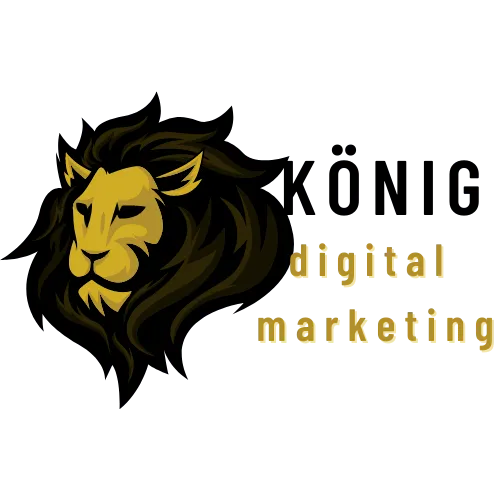

AI Marketing Automation & Lead Generation Solutions For B2B Scaling Founders
The only 3 things you need to rank #1 on Google. Get more patients and sales with our proven digital marketing services. Local SEO that gets results in 30 days or less!
AI Marketing Software & Lead Generation Solutions For Small Businesses
The only 3 things you need to rank #1 on Google. Get more customers and sales with our proven digital marketing services. Local SEO that gets results in 30 days or less!
Does Your Business Qualify For Fast Revenue Windfalls With A Database Re-Activation?
Multi-Channel Marketing Domination...
Marketing Automation
AI Powered Lead Generation
Multi-Channel Marketing Domination...

Transform your practice, amplify your patient base, and become the go-to dental supplier in your area. This isn't just an upgrade; it's a business-defining evolution.
Take charge of your growth today, dominate your market tomorrow. Ready to elevate your business? Let's connect!
The Ultimate AI Dental Manufacturer Growth Solution
Revolutionize your dental sales with our cutting-edge AI Dental Data Boost!
Crafted exclusively for ambitious dental suppliers, this game-changing solution doesn’t just fill your schedule—it transforms your practice into a thriving hub of new patients.
Here's what you'll get every month:
10,000 Targeted Data points: Dive into a vast pool of 10,000 meticulously enriched leads, each segmented by zip code, age, income, and mobile number. These aren't just names; they're detailed profiles tailored to match your ideal patient demographics.
Seamless CRM Integration: Say goodbye to manual data entry. Our advanced CRM system seamlessly integrates with your workflow, automatically loading leads and equipped with AI-powered nurture emails and appointment booking. Your schedule will be filled with qualified leads without lifting a finger.
Effortless Appointment Scheduling: Our AI doesn’t just schedule appointments; it optimizes your calendar based on conversion rates, ensuring your team's time is used efficiently, and every slot is maximized for potential patients.
Professional Call Center Support: To ensure no opportunity is missed, our dedicated call center professionals step in to seal the deal. They enhance lead engagement and ensure that your calendar is booked solid with quality appointments.
The Result? A constant stream of high-quality appointments flooding your calendar, ready to become long-term clients. You're not just growing your business; you're revolutionizing client acquisition.
The Ultimate AI Recruitment Accelerator
Unlock the full potential of your recruitment efforts with our exclusive AI Recruitment Accelerator package!
Designed specifically for forward-thinking recruitment firms, this powerhouse solution promises not just to fill your pipeline but to transform it into a dynamic engine of growth.
Here’s what you get every single month:
10,000 Precision-Targeted Data Points: Not just any leads, but 10,000 enriched contacts meticulously curated to connect you with key industry decision-makers. This isn't about quantity alone; it's about premium quality that converts.
Fully Integrated CRM System: We don't just hand over leads; we streamline them directly into a state-of-the-art CRM system. This system isn’t just a database—it’s your automated sales force, equipped with advanced nurture emails and AI-driven appointment scheduling, working tirelessly to warm up your prospects.
Automatic Appointment Setting: Forget the hassle of back-and-forth scheduling. Our AI tools analyze responses and optimize appointment times to fill your calendar efficiently. Each slot is meticulously planned to maximize your team’s productivity and focus on closing deals.
Dedicated Call Center Support: To ensure no opportunity slips through, our professional call center steps in to seal the deal. They’re your closing cavalry, enhancing lead engagement and ensuring your calendar transitions from busy to booming.

Make the switch to smarter recruiting. Transform your approach, multiply your outcomes, and dominate your sector. This isn’t just an upgrade. It’s a revolution.
Act now, dominate tomorrow. Ready to boost your recruitment game? Let’s talk!
The Ultimate AI Insurance Data Machine

Supercharge your insurance sales with our unparalleled AI Insurance Data Machine! Crafted for ambitious insurance agencies aiming to eclipse their competition, this all-in-one solution not just fills your sales funnel—it transforms it into a high-performance conversion machine.
Here's what your agency gains every month::
10,000 High-Quality Data Points: Dive into a pool of 2,000 meticulously enriched leads, each segmented by zip code, age, and income. These aren't random contacts; they're tailored picks designed to match your ideal customer profile, dramatically increasing the chances of conversion.
Fully Automated CRM Integration: Say goodbye to manual data entry. Our sophisticated CRM system automatically absorbs every lead, armed with advanced nurturing emails and an AI-driven appointment setting feature that works round-the-clock to warm up your prospects.
Effortless Appointment Booking: Our AI doesn't just schedule appointments; it optimizes your calendar based on peak conversion times, ensuring that your team's efforts are maximized and no opportunity is missed.
Professional Call Center Backup: To guarantee that every lead is capitalized on, our dedicated call center professionals provide the extra push needed. They enhance engagement and ensure that your calendar transitions from filled to fruitful.
The Outcome? A relentless stream of high-potential appointments flooding your calendar, ready for conversion. You’re not just playing the game; you're outsmarting the field. Transform your sales process, amplify your results, and become a leader in your market. This isn't just an advancement—it’s a complete overhaul of how you engage with potential clients.
Take action today, dominate your market tomorrow. Are you ready to elevate your insurance sales? Let's connect!
The Ultimate AI Recruitment Accelerator

Unlock the full potential of your recruitment efforts with our exclusive AI Recruitment Accelerator package!
Designed specifically for forward-thinking recruitment firms, this powerhouse solution promises not just to fill your pipeline but to transform it into a dynamic engine of growth.
Here’s what you get every single month:
10,000 Precision-Targeted Data Points: Not just any leads, but 1,000 enriched contacts meticulously curated to connect you with key industry decision-makers. This isn't about quantity alone; it's about premium quality that converts.
Fully Integrated CRM System: We don't just hand over leads; we streamline them directly into a state-of-the-art CRM system. This system isn’t just a database—it’s your automated sales force, equipped with advanced nurture emails and AI-driven appointment scheduling, working tirelessly to warm up your prospects.
Automatic Appointment Setting: Forget the hassle of back-and-forth scheduling. Our AI tools analyze responses and optimize appointment times to fill your calendar efficiently. Each slot is meticulously planned to maximize your team’s productivity and focus on closing deals.
Dedicated Call Center Support: To ensure no opportunity slips through, our professional call center steps in to seal the deal. They’re your closing cavalry, enhancing lead engagement and ensuring your calendar transitions from busy to booming.
Make the switch to smarter recruiting. Transform your approach, multiply your outcomes, and dominate your sector. This isn’t just an upgrade. It’s a revolution.
Act now, dominate tomorrow. Ready to boost your recruitment game? Let’s talk!
The Ultimate AI Dental Practice Growth Solution

Transform your practice, amplify your patient base, and become the go-to dental practice in your area. This isn't just an upgrade; it's a practice-defining evolution.
Revolutionize your dental practice with our cutting-edge AI Dental Data Boost!
Crafted exclusively for ambitious dental practices, this game-changing solution doesn’t just fill your schedule—it transforms your practice into a thriving hub of new patients.
Here's what you'll get every month:
10,000 Targeted Data points: Dive into a vast pool of 10,000 meticulously enriched leads, each segmented by zip code, age, income, and mobile number. These aren't just names; they're detailed profiles tailored to match your ideal patient demographics.
Seamless CRM Integration: Say goodbye to manual data entry. Our advanced CRM system seamlessly integrates with your workflow, automatically loading leads and equipped with AI-powered nurture emails and appointment booking. Your schedule will be filled with qualified leads without lifting a finger.
Effortless Appointment Scheduling: Our AI doesn’t just schedule appointments; it optimizes your calendar based on conversion rates, ensuring your team's time is used efficiently, and every slot is maximized for potential patients.
Professional Call Center Support: To ensure no opportunity is missed, our dedicated call center professionals step in to seal the deal. They enhance lead engagement and ensure that your calendar is booked solid with quality appointments.
The Result? A constant stream of high-quality appointments flooding your calendar, ready to become long-term patients. You're not just growing your practice; you're revolutionizing patient acquisition.
Take charge of your growth today, dominate your market tomorrow. Ready to elevate your practice? Let's connect!
Transform Your Business with Smart Marketing Automation Software...
Local SEO Services
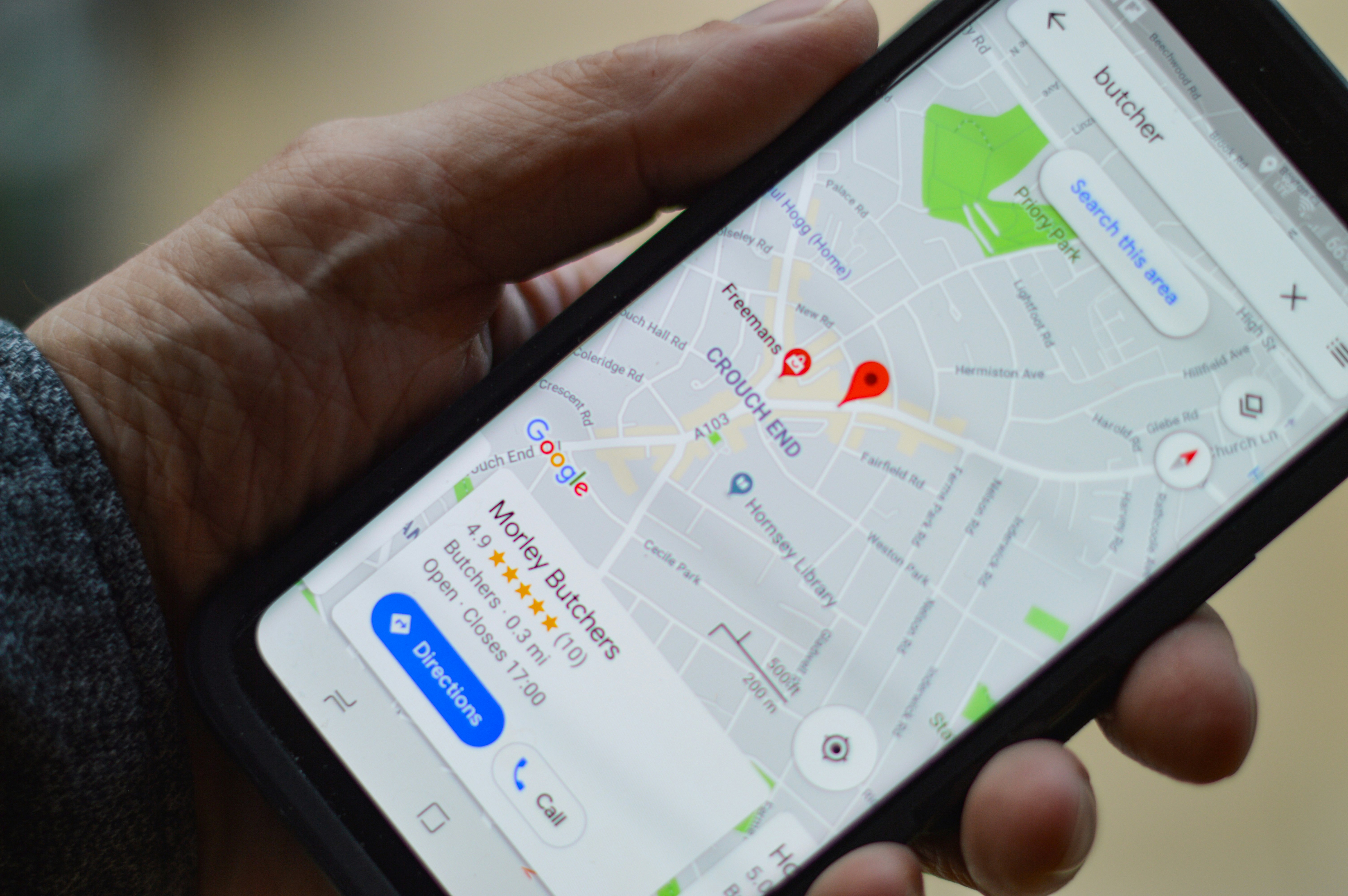
Local SEO
Local SEO is different from national SEO because it focuses on your community, in your business catchment where more than 85% of your customers come from and will come from, the very nature of local business marketing is competitive because you and all your competitors are wanting a slice of the same pie, local SEO is how you win…

Google My Business
Google My Business is the most powerful local SEO tool. It’s free, and it’s easy to use. If you have a business with a physical location, this is your chance to get more customers in the door, however, it is competitive and GMB SEO is needed to get in the 3-pack and stay there and that is where we come in, show up in near me search and do business…
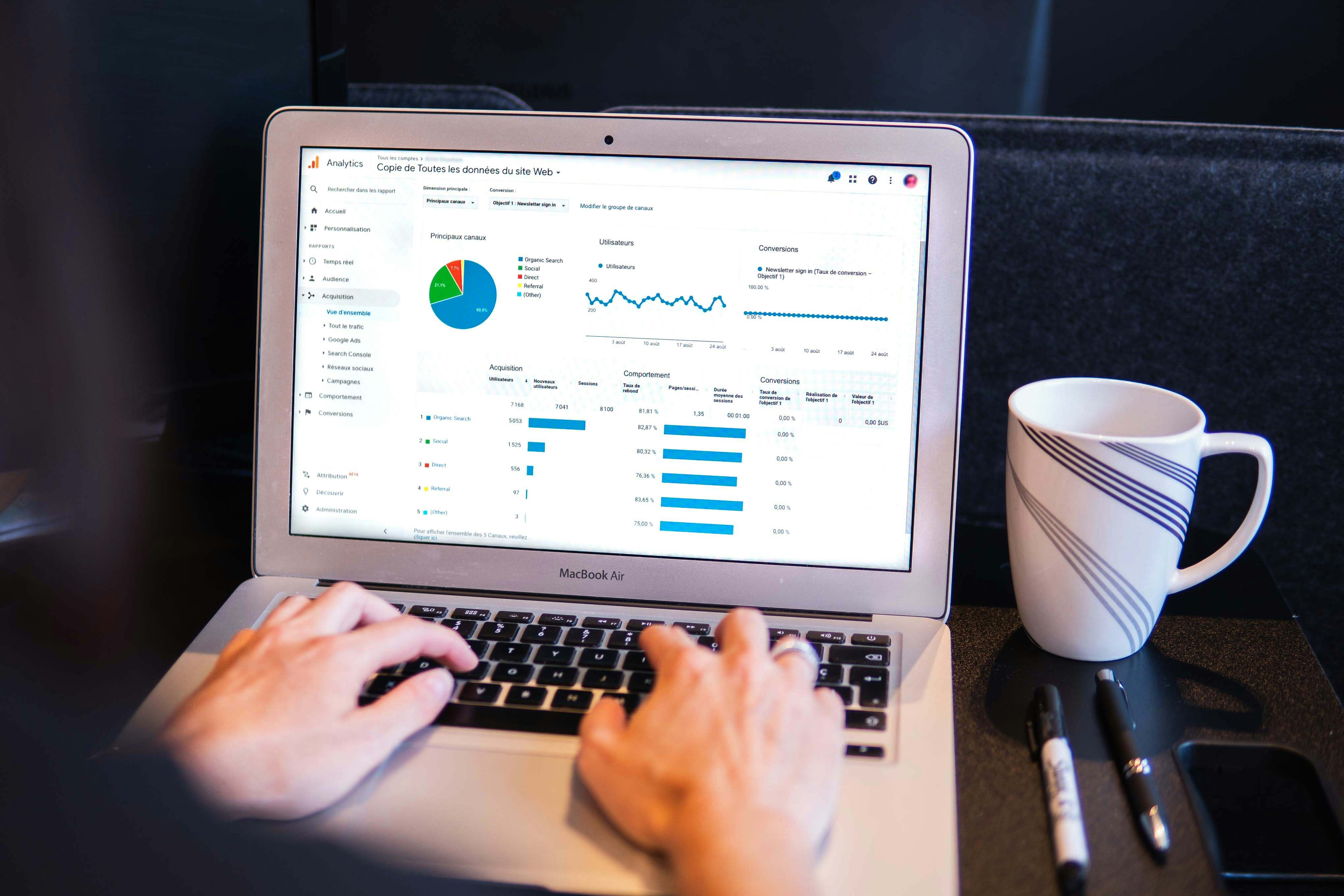
Google Local Services Ads
Are you a local business owner looking to dominate your local community with your services? Look no further than Google Local Services Ads! By using Google Local Services Ads, you can reach potential customers in your area who are actively searching for the services you offer. These ads appear at the top of Google search results, making them highly visible and effective.

3 Click Facebook Ads
New marketing automation software that helps businesses create Facebook ad campaigns with ease. With UpHex, creating ad campaigns has been simplified into a three-step process that anyone can complete. The platform allows users to create high-converting Facebook ads quickly and easily, using templates and automation tools.
Hear From Our Customers...
Alexis Williams
Dr CL Steyn - Orthopedic Surgeon
Elana Swart-Traut - Director Riverside College
Brandon Boyd
Pamela Runge - P2P Dental Connect
Riaan Willemse - Chris Willemse Painters
Terrys Tarot Readings
FAQ's
What is SEO?
SEO, or Search Engine Optimization, refers to the process of optimizing a website to improve its visibility in search engine results pages (SERPs). The goal is to increase organic (non-paid) traffic by enhancing the site's relevance and authority for specific keywords or phrases related to the content or services offered.

Why is SEO important?
SEO is crucial because it makes your website more visible to potential customers, leading to more traffic and opportunities to convert prospects into customers. It's a fundamental part of digital marketing because people conduct trillions of searches every year, often with commercial intent.

How does Google rank websites?
Google uses a complex algorithm that takes into account over 200 factors to rank websites. These factors include user experience, site speed, content quality, keyword relevance, mobile-friendliness, and inbound links, among others. The exact algorithm is a closely guarded secret and is constantly evolving.

What are keywords, and why are they important?
Keywords are words or phrases that users enter into search engines to find information. They are important because optimizing your website with relevant keywords helps search engines understand what your site is about, allowing it to show your site to the right audience.

What's the difference between on-page and off-page SEO?
On-page SEO refers to optimizations you can apply on your website, such as content quality and keyword optimization, meta tags, and site architecture. Off-page SEO involves external factors that influence your site's ranking but aren't directly on your site, like backlinks, social media presence, and other promotional activities outside your website.
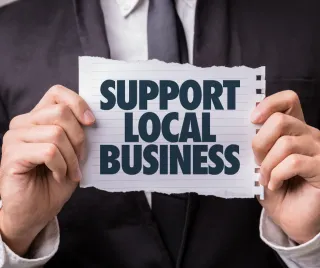
How long does it take to see results from SEO?
The timeframe to see results from SEO can vary greatly depending on numerous factors, such as the website's current state, competition in your industry, and the strategies implemented. Generally, noticeable improvements can be seen within 3 to 6 months, but SEO is an ongoing process that requires continuous effort for sustained success.

Are backlinks still important for SEO?
Yes, backlinks are still a critical factor in SEO. They act as a vote of confidence from one site to another, signaling to search engines that others vouch for your content. However, quality over quantity is crucial; a few high-quality backlinks from reputable sites are far more valuable than many low-quality links.

Can I do SEO on my own?
Yes, it's possible to do SEO on your own, especially with the wealth of resources and tools available online. However, SEO can be complex and time-consuming. Depending on your skill level and the competitiveness of your industry, you might benefit from hiring a professional or agency to manage your SEO efforts.

How do I choose the right keywords?
Choosing the right keywords involves researching to understand what terms your target audience is using to find products or services like yours. Tools like Google Keyword Planner and SEMrush can help identify relevant keywords, their search volume, and competition level. Focus on a mix of broad and long-tail keywords that accurately represent your content.

How has SEO changed over the years?
SEO has evolved significantly from simply stuffing pages with keywords to a more sophisticated approach that prioritizes user experience, content quality, and relevance. Search engines have become better at understanding user intent, promoting websites that provide value to users. As a result, modern SEO strategies focus more on creating high-quality content, optimizing for mobile users, and ensuring fast page loading times.
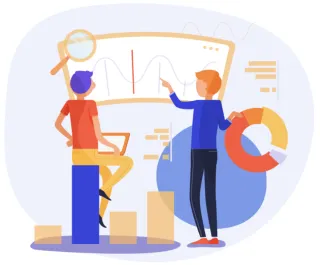
Why do you call your SEO service "Trust Based Ranking"?
"Trust Based Ranking" simply refers to doing SEO the right way or "white hat" as some might refer to it, we've been doing SEO and ranking since 2008 and through the years we've seen instant "black hat" methods crash and burn and Google rewarding and ranking websites sticking to the guidelines and delivering valuable content and service to their community, simply put it pays to gain Google's trust because your business will benefit from profitable search rankings.

From Our Blog
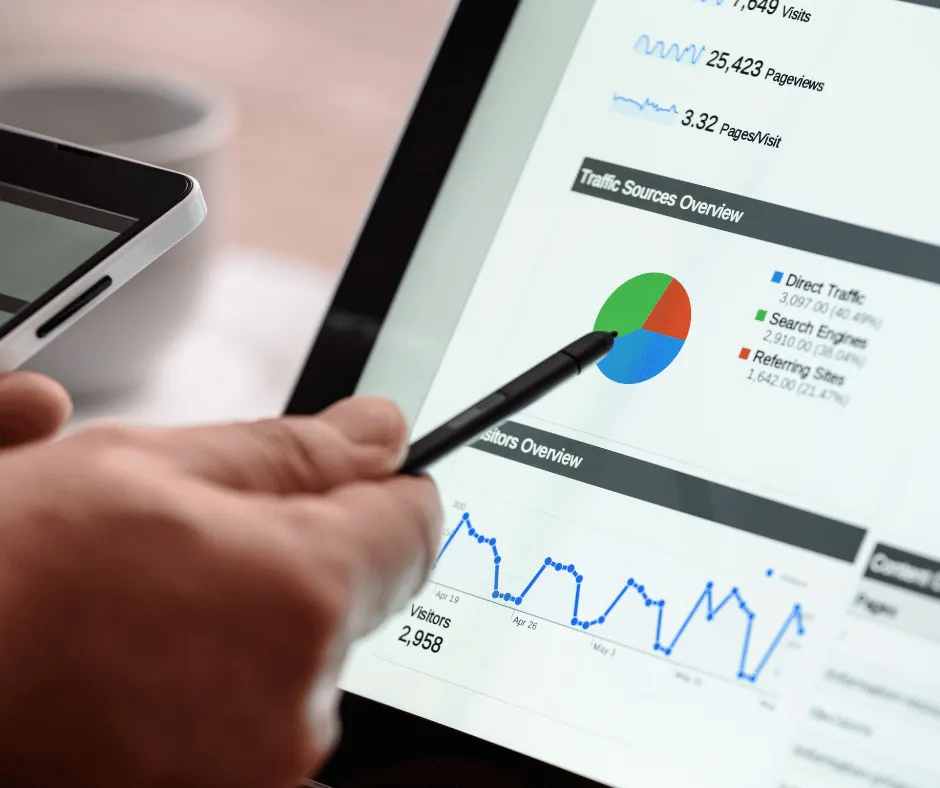
Local Service Ads vs Google Ads: Understanding the Key Differences
When it comes to online advertising, Google Ads has been a go-to platform for many businesses for quite some time.
Are you looking for a way to boost your local business’s online visibility and attract more customers? Look no further than Google Local Services Ads.
These ads are specifically designed for local service providers, such as plumbers, electricians, and cleaners.
In this article, we’ll explore the differences between Local Service Ads by Google and Google Ads and explain how you can set up your own Local Services Ads campaign.
Local Service Ads by Google are a newer advertising platform that allows local service providers to advertise their services to customers in their area.
With these ads, businesses can increase their online visibility, receive leads, and connect with potential customers.
One of the biggest differences between Local Service Ads and Google Ads is the pay for results model. With Local Service Ads, businesses only pay for leads they receive through the platform.
In contrast, Google Ads uses a cost-per-click model where businesses pay each time someone clicks on their ad.
Another key difference between Local Service Ads and Google Ads is the ad placement.
Local Service Ads only appear at the top of search results pages and on Google Maps, while Google Ads can appear at the top or bottom of search results pages and on other Google properties such as YouTube and Gmail.
To set up your own Local Service Ads campaign, you’ll need to follow a few steps. First, you’ll need to create an account on the Local Services Ads platform and fill out information about your business, including services offered, service areas, and licensing information.
Then, you’ll need to pass a background check to verify your business’s legitimacy.
Once your business is verified, you can set your budget and create your ad campaigns. Local Service Ads by Google allow you to target customers based on their location and the services they need. You can also set up specific schedules for when your ads appear.
In summary, Local Service Ads by Google are an effective way for local service providers to increase their online visibility and connect with potential customers.
With a pay for results model and specific ad placement, Local Service Ads offer a unique approach to online advertising that sets them apart from Google Ads.
If you’re interested in setting up your own Local Service Ads campaign, follow the steps outlined above to get started.
However, with the introduction of Local Service Ads, there has been some confusion about the differences between the two. In this blog post, we’ll explore the key differences between Local Service Ads and Google Ads.
First, let’s define what each platform is:
Google Ads, formerly known as Google AdWords, is an online advertising platform developed by Google. It allows businesses to create ads that appear on Google search results pages and other Google properties.
Local Service Ads, on the other hand, is a newer advertising platform also developed by Google. It’s designed specifically for local businesses and allows them to advertise their services on Google search results pages and Google Maps.
Now, let’s look at some of the key differences between the two platforms:
Ad Placement: Google Ads can appear at the top or bottom of search results pages, as well as on other Google properties such as YouTube and Gmail. Local Service Ads, however, only appear at the top of search results pages and on Google Maps.
Targeting: With Google Ads, businesses can target their ads based on keywords, demographics, location, and more. Local Service Ads, on the other hand, are targeted based on the services the business offers and the location of the customer.
Cost: Google Ads uses a cost-per-click (CPC) model, where businesses pay each time someone clicks on their ad. Local Service Ads use a cost-per-lead (CPL) model, where businesses pay for each customer lead they receive through the platform.
Verification: Local Service Ads requires businesses to go through a verification process to prove they are a legitimate, licensed business. Google Ads does not have this requirement.
Reviews: Local Service Ads includes a review system where customers can leave feedback about their experience with a business. Google Ads does not have this feature.
Differences in Keyword Research: Google Ads vs. Local Service Ads
Google Ads: When you're managing a pay-per-click (PPC) campaign through Google Ads, keyword research becomes a critical task that you'll handle personally or through your marketing team.
This involves identifying specific words and phrases your potential customers might use when searching online.
The keywords need to align closely with your business offerings and customer inquiries, guiding them to your website.
Local Service Ads: On the other hand, Local Service Ads simplify the process considerably. You won't need to dig into keyword research yourself.
Instead, you'll select your business category and specify the services or products you offer.
Google will then automatically generate and match relevant keywords for your business, ensuring the right audience is directed to you without the need for detailed manual input.
How Does Ad Copy Creation Differ Between Google Ads and Local Service Ads?
Creating ad copy requires a distinct approach when comparing Google Ads to Local Service Ads.
Google Ads: Flexibility and Responsibility
Customizable Copy: With Google Ads, advertisers have total control over their ad copy, allowing them to craft unique messages tailored to their target audience. This flexibility means you can highlight specific features or promotions that might appeal to potential customers.
Impact on Performance: The success of your campaigns heavily depends on the quality and relevance of your ad copy. Engaging and targeted wording can increase click-through rates and conversions.
Creative Challenges: While this customization gives advertisers creative freedom, it also demands a keen understanding of the audience and strategic thinking to stand out in a competitive landscape.
Local Service Ads: Simplicity and Consistency
Pre-Formatted Information: Local Service Ads streamline the process by utilizing a predetermined format. Instead of creating ad copy from scratch, businesses provide essential details, which are then used to generate ads.
Focus on Essentials: This approach saves time and reduces complexity, as the focus is on accurate information rather than creative wording.
Standardized Presentation: By standardizing information, the ads maintain consistency and reliability, aiding in building trust with prospective clients.
In summary, while Google Ads empowers businesses with creative control and the potential for personalized messaging, Local Service Ads offer a straightforward, time-efficient solution focused on clarity and consistency.
Understanding the Google Guarantee Badge and Its Role in Local Service Ads
The Google Guarantee Badge is a symbol of trust and credibility that businesses can earn through the Local Services Ads platform. This badge is prominently displayed next to a business's name in search results, offering reassurance to potential customers.
How It Works:
Verification Process: To earn this badge, businesses must undergo a thorough verification. This often involves background checks and license verification, ensuring the business meets high-quality standards.
Customer Assurance: When a business displays the Google Guarantee Badge, it signals to potential customers that Google vouches for the business’s reliability. This increases consumer confidence by providing a layer of security.
Relationship with Local Service Ads:
Enhanced Visibility: By incorporating these badges, Local Service Ads make businesses more noticeable in search results. This differentiation helps businesses stand out among competitors.
Boosted Credibility: The badge enhances a business’s reputation by showing that it has Google's backing. This can lead to higher conversion rates, as customers are more likely to trust and engage with verified, guaranteed businesses.
In essence, the Google Guarantee Badge is a key feature of Local Services Ads, aimed at elevating consumer trust and improving business outcomes.
Are Local Service Ads Available for All Business Types and Industries?
Local Service Ads (LSAs) are predominantly tailored for specific business categories and job types, focusing on helping service-oriented businesses connect with nearby customers. However, LSAs are not universally available to all industries or business types.
Industry Restrictions:
LSAs cater mainly to certain service industries.
The eligibility depends on factors such as location and business type.
It's important to check the current list of supported industries to determine if your business qualifies.
What if Your Business Doesn't Qualify?
While many local service providers find themselves on the list, some businesses might still be left out.
In instances where your business does not qualify, exploring alternative advertising channels, such as Google Ads, can be a beneficial option. Google Ads offers a wider net of opportunities that cater to a broader range of business types.
In summary, while LSAs offer a targeted approach for many service-based industries, they are not a one-size-fits-all solution. Exploring eligibility and alternative platforms ensures you find the right fit for your advertising strategy.
So which platform is right for your business?
It depends on your goals and the nature of your business. If you’re a local service provider, such as a plumber or electrician, Local Service Ads may be a better fit for you.
These ads are specifically designed for local businesses and only show up when potential customers search for your specific business type. This targeted approach ensures your ads are seen by the right audience.
Local Service Ads also operate on a pay-per-lead model, meaning you only pay when a potential customer contacts you directly through the ad. This can be more cost-effective than the traditional pay-per-click model of Google Ads, allowing you to manage your advertising budget more efficiently.
Moreover, Local Service Ads can enhance your credibility by positioning your business as a trustworthy leader in your industry. Customers are more likely to engage with businesses that are highlighted as reputable and reliable.
If you have a more general product or service that you want to advertise, Google Ads may be a better choice. This platform offers broader reach and is ideal for businesses looking to attract a wider audience beyond local searches.
Local Service Ads and Google Ads have their similarities and differences. It’s important to understand these differences and determine which platform is best for your business based on your goals, target audience, and budget.
As advertising platforms like Google Ads and social media ads continue to evolve, businesses may have questions about how to effectively use them to reach their target audience.
Both Google Ads and Local Service Ads offer distinct advantages that can enhance your marketing returns as a small business. The choice between them depends on your business goals, target audience, and budget.
If you’re a local service provider, such as a plumber or electrician, Local Service Ads may be a better fit for you. They are designed to connect local businesses with nearby customers actively seeking specific services, potentially increasing your visibility and conversion rates in your immediate area.
On the other hand, if you have a more general product or service that you want to advertise, Google Ads may be a better choice. This platform allows for broader reach and more versatile advertising options, helping you target a wider audience across different locations and demographics.
It's important to understand the similarities and differences between Local Service Ads and Google Ads. By evaluating which platform aligns best with your specific business type and local area, you can maximize your marketing return.
Here are some of the top frequently asked questions (FAQs) about ads:
What are the different types of ads available?
There are various types of ads available, depending on the platform. Some common types include search ads, display ads, video ads, shopping ads, and social media ads. Each type has its own benefits and can be used for different purposes.
How much do ads cost?
The cost of ads can vary widely depending on the platform, the type of ad, and the competition for the targeted keywords or audience. Some platforms, like Google Ads, use a pay-per-click model where businesses pay for each click on their ad. Others, like social media ads, may use a cost-per-impression or cost-per-action model.
How do I target my ads?
Most advertising platforms offer targeting options such as location, demographics, interests, and behavior. You can also target based on keywords or specific websites. Understanding your target audience and their behaviors can help you effectively target your ads.
How can I measure the success of my ads?
Each platform provides metrics to measure the success of your ads, such as click-through rate (CTR), conversion rate, and cost per conversion. It’s important to set specific goals and track these metrics to determine the success of your ads and make adjustments as needed.
How do I write effective ad copy?
Effective ad copy should be clear, concise, and targeted to your audience. Use attention-grabbing headlines and highlight the benefits of your product or service. It’s also important to use strong calls to action to encourage users to take action.
Should I hire a professional to manage my ads?
Hiring a professional to manage your ads can be beneficial if you’re unfamiliar with the platform or don’t have the time or resources to manage your campaigns effectively. A professional can help optimize your campaigns, improve targeting, and provide insights into your audience.
When to Reconsider Using Google Ads
Although Google Ads can be a powerful tool for boosting your online visibility and reaching a wider audience, there are situations where it might not be the best option for your business. Here’s when you might want to think twice about using this advertising platform:
Lack of Keyword Research Skills: If you're not comfortable or experienced with conducting thorough keyword research, Google Ads might not provide the return on investment you're hoping for. Targeting the wrong keywords can lead to wasted spend with minimal results.
Primarily Local Focus: Businesses that cater exclusively to a local audience might find more success with other, more targeted advertising avenues. Platforms like local directories or community-based marketing might offer better results.
Limited Advertising Budget: If you're operating on a tight budget, the cost-per-click model of Google Ads might quickly eat into your funds without significant results. It’s essential to ensure your budget can sustain a competitive bidding strategy.
Past Attempts Unsuccessful: If you've previously tried Google Ads and it didn’t yield satisfactory results, it might be time to evaluate other marketing tactics. Consider whether your campaign structure, ad content, or targeting was optimized before giving it another go.
By evaluating your business needs and capabilities, you can make a more informed decision on whether Google Ads is the right fit for you. Consider exploring other marketing strategies that align better with your specific goals and strengths.
Local Service Ads by Google are an effective way for local service providers to increase their online visibility and connect with potential customers. If you're looking to boost your presence, foster qualified leads, and engage with your local community, these ads are definitely worth considering.
With a pay-for-results model, Local Service Ads offer a unique approach to online advertising that sets them apart from traditional Google Ads. This model means you only pay for the leads you actually acquire, making it a cost-effective option for businesses focused on tangible outcomes.
Additionally, the specific ad placement ensures that your services are prominently displayed, enhancing your visibility to those most likely to convert into customers. By targeting your local area, these ads help you connect with the right audience, maximizing your marketing efforts and driving meaningful results.
In conclusion, advertising can be a powerful tool to reach your target audience and drive sales. Understanding the various types of ads available, how to target effectively, and how to measure success can help you make the most of your advertising budget. Don’t hesitate to seek help from a professional if needed to maximize your results.
Marketing Automation and Small Business Marketing
Marketing for small businesses is a crucial endeavor that significantly impacts their ability to attract customers, generate revenue, and achieve sustainable growth.
Unlike larger corporations with extensive resources and established brand recognition, small businesses must employ strategic, cost-effective marketing techniques to compete in the marketplace.
Effective marketing for small businesses involves understanding the target audience, leveraging the power of digital and social media platforms, and creating engaging, relevant content that resonates with potential customers.
Understanding the target audience is the first step in crafting an effective marketing strategy.
Small businesses must identify who their ideal customers are, what needs and desires they have, and how the business's products or services can meet those needs.
This knowledge allows for the creation of tailored marketing messages that speak directly to the audience's interests and pain points, significantly increasing the effectiveness of marketing efforts.
Digital and social media platforms offer powerful tools for small businesses to reach and engage with their target audience.
With relatively low costs compared to traditional advertising channels, these platforms allow small businesses to achieve a wide reach.
By utilizing SEO strategies, social media marketing, email campaigns, and content marketing, small businesses can effectively attract, engage, and retain customers.
Engaging content, whether it's informative blog posts, compelling videos, or eye-catching social media posts, is key to capturing the audience's attention and encouraging them to interact with the brand.
However, navigating the complexities of marketing can be challenging for small business owners, who often wear multiple hats and may not have specialized marketing expertise.
This is where professional marketing services come into play.
By partnering with marketing experts, small businesses can develop and implement effective marketing strategies tailored to their unique needs and goals, allowing them to focus on other critical aspects of their business.
Don't let the challenge of marketing hold your small business back from reaching its full potential.
Unlock the power of expert marketing strategies tailored to the unique needs of your business.
Contact us today to learn how our marketing services can help you attract more customers, boost your revenue, and achieve sustainable growth. Let's take your small business to new heights together!
Start with out FREE Marketing Audit
Konig Digital, LLC
Address: 7903 Cole Ave, Takoma Park, MD 20912, United States
Email: [email protected]
Phone No: +1 (240) 202-2609
Hours:
Weekdays – 8 AM to 5 PM
Weekends- OFF

2025 All rights Reserved | Sitemap






